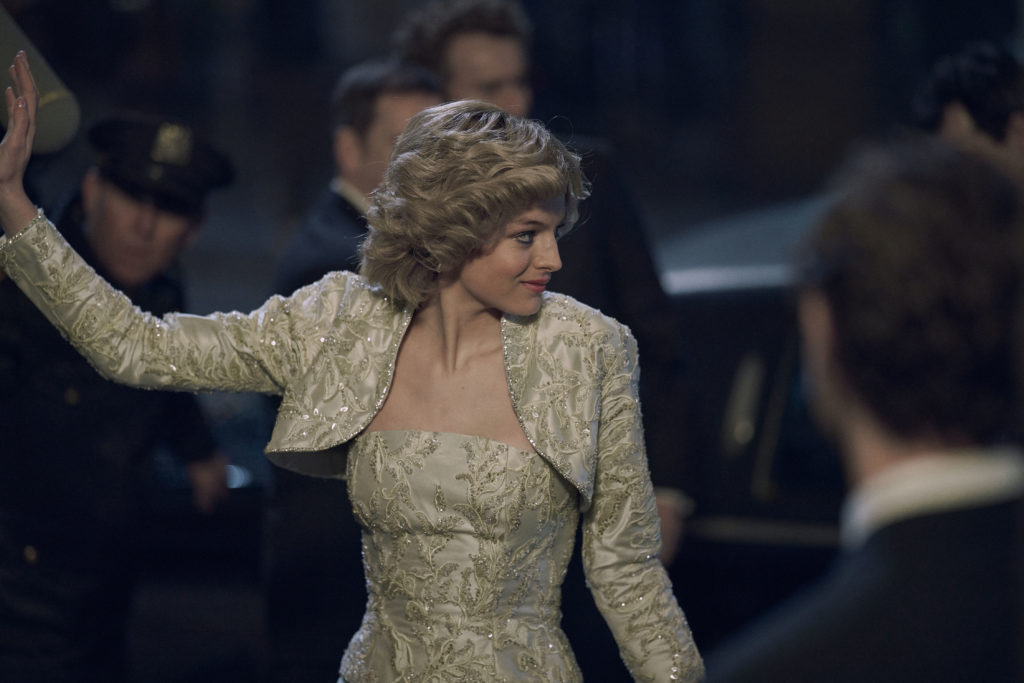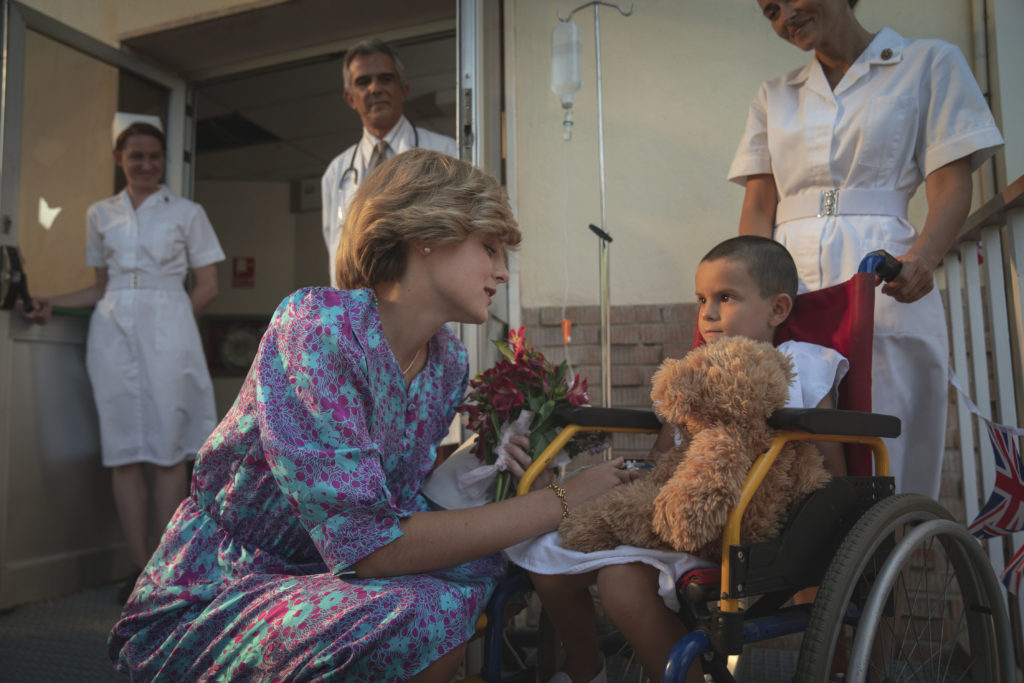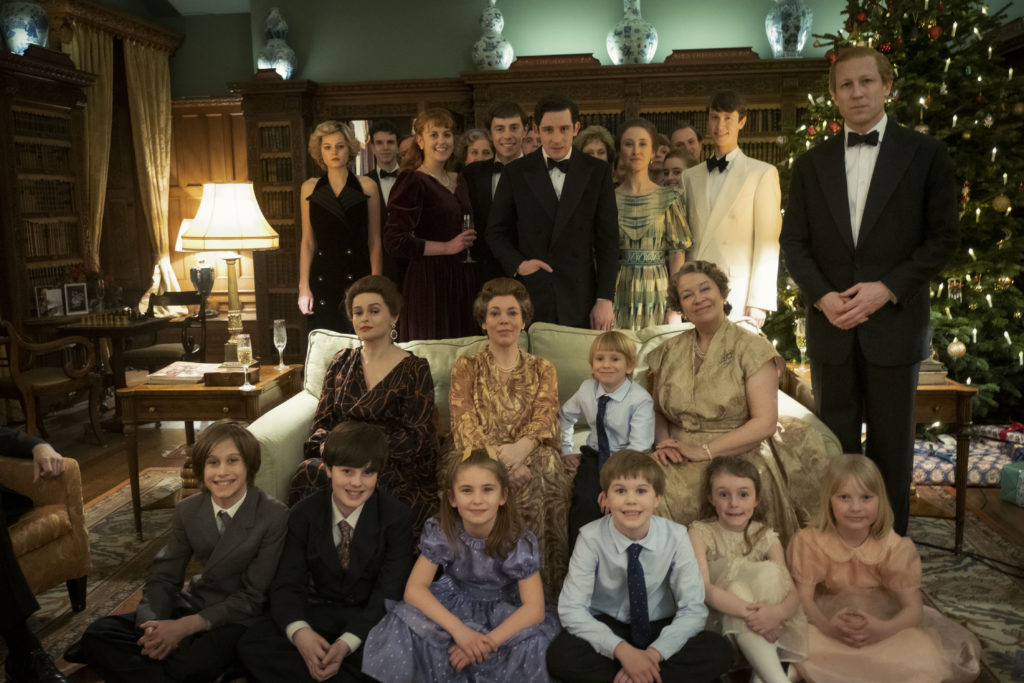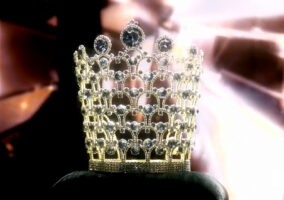
In the season 4 finale, The Crown takes the Thatcher era to its inevitable end, pushes the Diana storyline into its next phase, and says goodbye to another cast while doing its best to restate its most dearly held themes.
We can understand why Peter Morgan would want to spend the final episode of the season giving equal time and weight to its two season-long storylines, but as we look over our notes for the episode, it occurs to us that he might have been better off letting Margaret Thatcher do what she did best her whole life: dominate the proceedings. Olivia Colman and Gillian Anderson had three Emmy-reel worthy scenes together this episode while all of the Diana stuff simply felt like a lot of reiterating what we already know and the show has already depicted at this point. To be fair, we think this season proved that the Wales marriage is a problem if you’re attempting any serialized, long-form depiction. In life as in its fictionalized version, it was simply so long, so dreary, so wretched that literally everyone was sick of it by the time it ended. Credit where it’s due, however: Morgan managed to tie off several narrative arcs in some fairly satisfying ways.
Diana and Charles meet up in separate cars to arrive at William’s school and do a terrible job of putting on a display of support and family bonds. The show has probably rightly avoided spending too much time with the young princes this season and Morgan has said he has no desire to depict the stories of them as they get older. We think he’s right to do so, because when the show lingers on either of them, as it does here on William’s sad face when his clearly unhappy parents say goodbye to him, the feel of the series drops from “prestige television” to “Lifetime movie.” On the drive back, Diana tries to talk and Charles bites several chunks off her in response, sneering about her mental health, her infidelities and her upcoming solo trip to New York, which he bitterly refers to as “an ugly, avaricious piece of self-advancement.” He can’t stand her popularity and is revolted by her emotional needs. It’s honestly a little shocking how hard the show went on turning Charles into a villain.
After an ugly scene in a car, we get an ugly scene around a conference table as Diana’s tiny team of secretaries and assistants faces off against Charles’ massive team of same. The couple sit silently staring at each other as their proxies attack or defend; Charles seething and Diana looking like a rabbit on a highway. If you turned the sound down you’d swear they were hammering out the details of their divorce instead of bickering over the Princess’s New York trip. Charles’ private secretary needles her and says they’re concerned about the “toll” her schedule may take on her, making sure to pointedly mention the hardship of being separated from her children and questioning the strength of her mental health. This is, of course, the same man whom Diana berated on the Australia trip for separating her from her son and he’s clearly relishing the opportunity for a little payback and we have to admire the tightness of the writing, that it gave even this character an arc with legitimate closure.
Diana is a nervous wreck about the trip (made more so by Charles fucking with her head like that), but unfortunately, there’s no dramatic tension in the idea because we all know how much her career and standing took off when she struck out on her own. Perhaps this is why the actual scenes in New York felt so low-energy and perfunctory, including the moment when she famously hugged children in an AIDS ward. Strangely underwhelming sequence aside, Diana’s trip was a triumph, of course. In fact, Diana’s trip is such a success that it leaves Camilla utterly shaken, causing her to beg Charles to abandon any ideas of marrying her, rightly predicting that she would lose in a popularity contest against Diana. “Someone who looks like me has no place in a fairy tale,” she says, a bit self-pityingly, and bluntly cuts off his declarations of love by calling her his mistress. This is a far cry from the Camilla who took Diana out to lunch and practically tortured her and seeing her chastened and fearful feels like Morgan giving Diana a little bit of revenge.

That’s certainly how Charles took it, since he stormed into Kensington Palace and practically tore her head off for “hurting” the woman he loves, in the series’ ugliest scene yet. Charles sneers at what he calls “the calculated vulgarity” of hugging AIDS patients and asks, “You think we couldn’t do that too? Theatrically hug the wretched and dispossessed?” No wonder there’ve been so many “The Crown is fiction” noises coming from the direction of Buckingham Palace recently. This season may have singlehandedly undone two decades of masterful PR work, rehabilitating the reputations of the next King and Queen Consort.
Having torn Charles down like a condemned building, Morgan gives Margaret Thatcher a surprisingly sentimental sendoff that comes pretty close to turning her into a hero figure. After the political tide turns against her and she appears to be looking at the end of her time as Prime Minister, Thatcher tries to carry on with business during her audience with the Queen. She is uncharacteristically coy and vague, trying several times to pretend like she doesn’t know what the Queen actually wants to talk about, in a neat reversal of their confrontation in “48:1,” when Elizabeth tried to pretend that the press reports of her disapproval weren’t on her mind. Elizabeth is vaguely amused by this — and by Thatcher’s insistence that she’ll be able to dispense with her challengers handily, which she conveys to Philip through a pretty funny imitation of Thatcher’s style of speaking.
After failing to gather enough support to survive a challenge, Thatcher says she has one card left to play. She visits the Queen again, pointedly runs down the list of world leaders she claims are appalled by her treatment (“What they all agree on is that getting rid of me is an act of self-harm”), and asks her to dissolve Parliament. Here we see a Thatcher less committed to her ideals about governance and far more concerned with holding and keeping power, which the Queen wisely calls out. “We must all ask ourselves when to exercise those things that are within our power and when not to.” Again, there’s no small sense of satisfaction on the Queen’s part in turning her down, which feels a bit like payback for Thatcher failing to support her in the idea of economic sanctions against South Africa. Which isn’t to say that Elizabeth isn’t standing on her principles here. This is, in fact, a classic showdown between their two opposing philosophies; a culmination of the fight they’ve been having all season. Elizabeth notes that Margaret’s first instinct is to show conviction and to act upon it. Margaret counters that’s what a leader does. After noting that her cabinet, her party, and the country are against her, Elizabeth sharply advises, “Perhaps the time has come for you to try doing nothing for once.” And FINALLY a situation arises where Elizabeth’s only piece of advice actually applies. When Margaret, near tears, replies that she will have nothing if she does nothing, the Queen somewhat condescendingly replies, “You will have your dignity.”
At their third meeting, their relationship comes full circle, in a surprisingly touching way. Elizabeth calls Margaret to Buckingham Palace for a private, personal audience after she is voted out. She talks to her about the unique difficulties of being women holding power surrounded by men who tell them how to wield it and tells her she admires how well Thatcher navigated those waters. She then offers her sympathies and regret that her exit was so harsh “Not as Queen to Prime Minister, but woman to woman.” We can – and do – vehemently disagree with the notion of Thatcher as a particularly admirable person, but it’s a testament to the writing that this scene truly worked on an emotional level. Gillian Anderson’s face as Thatcher is bestowed the Order of Merit is an amazing thing to watch. As she’s leaving – and clearly struggling to control her emotions – Anderson makes that tiny fraction of a turn before exiting, as if Thatcher wanted one more glimpse of the connection to power she would never have again. We knew her acting choices were going to be controversial when we first watched the screeners a few months back. We wound up respecting the meticulous nature of her performance, with the understanding that we weren’t watching someone attempt strict mimicry. It didn’t always work, but it was a fully realized creation, top to bottom. Her Thatcher was an idea more than a person, a force of nature, and a rhetorical master who dominated any conversation. She and Colman had amazing chemistry together.

And finally, to close out this version of the series, it’s time for CHRISTMAS AT SANDRINGHAM, which turns out to be, like so many other aspects of this family, an utter nightmare for Diana. The whole family has seemingly turned on her, giving the absolute coldest of cold shoulders, none more so than the ice queen herself. “The dogs need feeding,” she vacantly replies to a clearly distressed Diana. But When Charles approaches her, she doesn’t ignore him. Instead, she tears into him in her angriest scene yet, calling him “a spoiled, immature man, endlessly complaining unnecessarily.” And while it’s great to see someone tell him that to his face, Elizabeth is no more correct than anyone else in this wretched tale. She claims they’re all sick of it and tells him once again to pull himself together, informing him that he will not be permitted to separate “or let the side down in any way” She finishes him by off telling him that if he wants to be king, “Might I suggest you start by behaving like one,” which is an interesting glimpse into her character. It’s not as if kings are known for being stoic family men, faithful to their queens. When she orders him to behave like a king, she means behave like the only man who was ever truly her king: her sainted father.
Philip goes to see the isolated Diana to offer her some sympathy. Because he’s him and she’s her, it goes badly. He makes the mistake of assuming they had things in common as the consort to a sovereign, but after Charles’ ugly outburst and the Queen making it clear that she considered her dogs more important, the Princess of Wales has finally had enough. She waves off his attempts to be conciliatory and tells him she’s far past that point, informing him that she plans to look for a life outside of and away from the family. He loses patience with her and reaffirms that which the show makes explicit at the end of all of its seasons. “Everyone in this system is a lost, lonely, irrelevant outsider,” he tells her, over a collage of sad family members, “Apart from the one person, the only person, that matters. She is the oxygen we all breathe, the essence of all our duty,” adding pointedly, “You seem to be confused about who that person is.” It’s a good line, but as she said, she’s far past the point of caring about the sanctity of the sovereign when the sovereign clearly doesn’t give a shit about her. Unlike Philip, who has spent his life supporting a stoic, duty-bound sovereign who loved him in return, Diana’s had to spend the last decade being abused by a petulant, enraged, self-absorbed sovereign-to-be who loathes her and has no respect for her. Asking her to suck it up in service to that is hilariously misguided and the final shot of her grimly set face serves as a prelude for the vengeful Diana to come.
The Crown: “Avalanche” Next Post:
Christian Dior’s 2020 Christmas Ornaments
Please review our Community Guidelines before posting a comment. Thank you!



